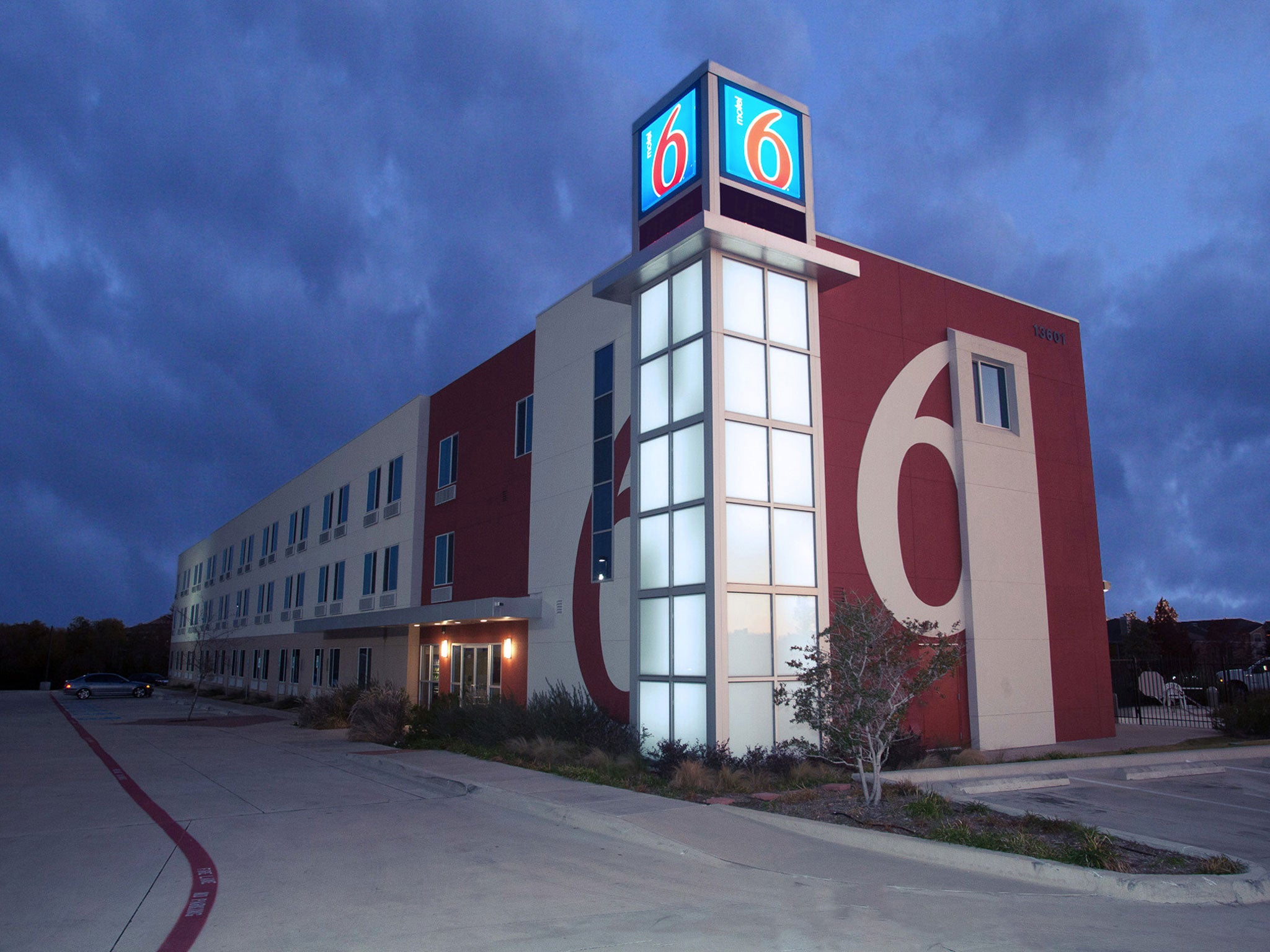Jennifer M Volland: The infinite possibilities of the humble hotel
Something to Declare

Motel 6, the ubiquitous American roadside chain, may not register on many people's Top-10 lists for places to stay. Its stripped-down, functional aesthetic caters to travellers looking for great value. But to my eight-year-old self – who typically roughed it in campsites up and down the west coast of California with my mother and siblings – the sight of the vast parking lot and low-slung building was like an oasis in the middle of the desert.
At that time, in the mid-1970s, I had no qualms about the nondescript architecture, or the polyester bedspread, or the uncomfortable vinyl furnishings situated in front of the sliding aluminium window. I was more concerned with what was possible in the 12 hours before we had to hit the road again: swimming in the pool, running up and down the outside staircase, getting sweets and soda out of the vending machines, and staying up late to watch cable television.
Motel 6 transported me to a world very different from my own. From my earliest experiences, I was hooked. As a teenager and young adult, my travels took me further abroad, and the hotel – from an $8-a-night backpacker hostel in Thailand to a thatched beachfront hut in Fiji – served as a platform for me to experience the world, a virtual crossroads of culture, design and social interaction.
Memories of hotels, of spaces filled with opportunity and potential, are not limited to impressionable youth. Rather the idea of the hotel resonates within a collective public consciousness. It seems that everyone has a hotel story – of a place visited, of a place dreamt about, of a place that served as the setting for a significant life moment. It's no wonder that the hotel has been the muse of writers, artists, musicians and filmmakers; it is a character in and of itself, a generative entity for creative production. It is also a zone of transition that offers detachment from the spatial and psychological constraints of everyday existence and opens the door to a new reality.
Grand Hotel: Redesigning Modern Life, a large-scale exhibition currently on view at the Vancouver Art Gallery in Canada, is the culmination of my lifelong inquiry. Charting the evolution of the hotel from its humble origins as an isolated and utilitarian structure, to a cultural phenomenon that figures prominently within the global landscape, it examines how the hotel has both reflected and shaped ideas about modern life.
But far from being the last word on the subject, Grand Hotel acknowledges the complex, ever-changing and elusive nature of hotels, and in turn, our shifting attitudes toward them. The author Joan Didion once wrote: "Of course great hotels have always been social ideas, flawless mirrors to the particular societies they service." Looking back, I see how Motel 6 symbolises a distinct tradition, of individuals finding freedom in humble accommodations that dot the vast landscape. And, for me, the hotel continues to do just that – stir the imagination, whatever its form.
Jennifer M Volland is the co-curator of 'Grand Hotel: Redesigning Modern Life' at the Vancouver Art Gallery in British Columbia, Canada, until 15 Sept (grandhotelexhibition.com).
Join our commenting forum
Join thought-provoking conversations, follow other Independent readers and see their replies
Comments
Bookmark popover
Removed from bookmarks